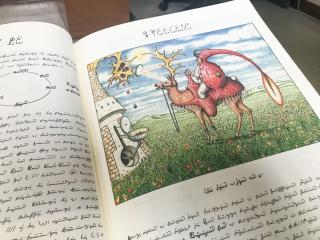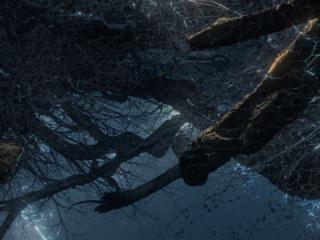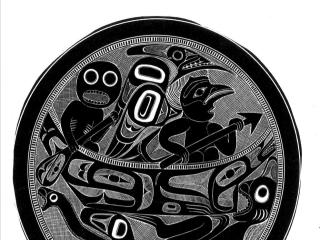Writer B.J. Novak imagines a roller coaster that's modeled after real life, and designed by the artist Christo.More
Arts and Culture
Kelly Link writes what she calls "slipstream fiction" — magical realist with a strong dose of weird.More
Cultural anthropologist Scott A. Lukas describes the history and cultural significance of theme parks such as Disney World.More
New York Times Book Review Editor Pamela Paul on why reading — and more importantly, a deep connection to when, why, where and how of what we read — is so important at every age. More
Author Susan Orlean on how the worst library fire in American history brought an entire city together to save 700,000 books.More
Are we losing the ability to read difficult books? Cognitive scientist Maryanne Wolf says we need to develop a "bi-literate reading brain" so that we can switch back and forth between the deep reading of print and the skimming of electronic texts.More
The "Codex Seraphinianus" has a magical air to it, full of bizarre illustrations and beautiful calligraphy in a made-up language. Publisher Charles Miers told Charles why he published the book, and why trying to understand it isn't really the point.More
Writers are used to working in isolation. So how are they responding to the COVID-19 lockdown? Ilan Stavans has edited an anthology of international writing to consider the question. Stavans himself says the pandemic has liberated him as a writer.More
Photographer Murray Ballard says he expected a cryonics facility to look like something out of a sci-fi movie scene. But in visiting one, Ballard says he was intrigued by the contrast between such an ambitious endeavor and the somewhat unremarkable architecture and equipment.More
When photographer Phil Toledano's mother died in 2006...More
Between 1996 and 1998, Bastienne Schmidt and her husband Philippe Cheng traveled throughout the United States photographing the diverse services and ceremonies Americans use to mark the death of family members and friends. According to Cheng, one of the goals was to "show some of the poetry of death and dying in America."More
Nicholas Nixon has devoted a significant amount of his long career — which stretches back to the 1970s — to taking portraits of people who are sick and dying. He continues to work with people coming to the end of their lives, including those in palliative care and hospice.More
Helen Macdonald's book "H is for Hawk" turned her goshawk Mabel into one of the most memorable literary characters of recent years. Mabel is no longer with her, but Helen now has a new avian companion — an ornery and very smart parrot.More
Colson Whitehead’s novel "The Underground Railroad" won the Pulitzer Prize and the National Book Award. Steve Paulson spoke with him about this powerful, sweeping epic.More
For more than 40 years, Marina Abramovic has been testing what’s permissible — and physically possible — in art.More
Fungi contain vast, untapped potential, says Louie Schwartzberg — to remediate pollution, reverse climate change, even address chronic disease and mental disorder — something he argues in his film "Fantastic Fungi."More
Mushrooms have inspired scientists, chefs and even musicians. Mycologist Lawrence Millman says they’ve also inspired a few composers, including Vaclav Halek and John Cage.More
The Haida First Nation people in British Columbia have a myth about the origin of humanity coming from "Fungus Man." And that myth contains plenty of truth.More


















